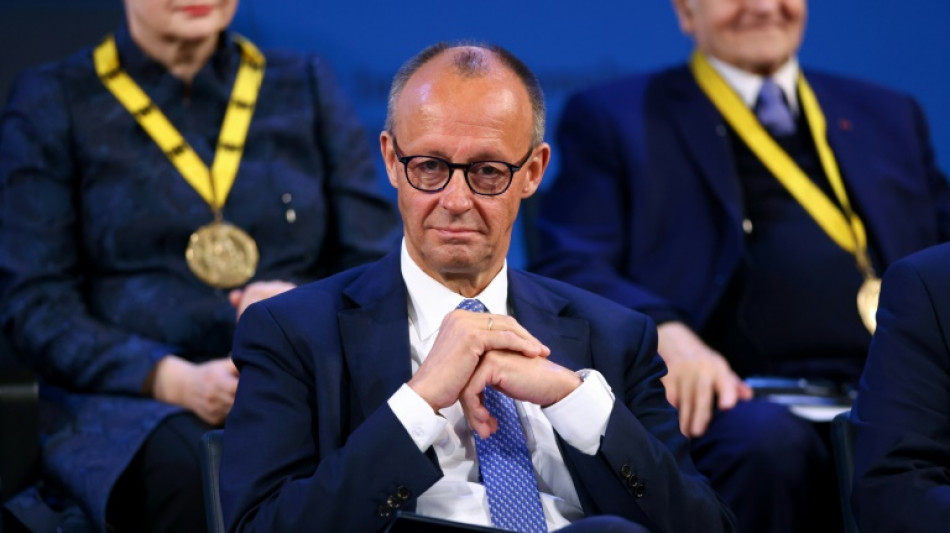
Germany's Merz defends migration crackdown after court setback

German Chancellor Friedrich Merz on Tuesday defended his government's migration crackdown as vital to "protect public safety", a day after a court ruled one of its flagship measures was illegal.
The Berlin court said Monday that German border officials cannot turn away asylum seekers before it was determined which country should process their cases under EU rules.
The decision, in response to a challenge brought by three Somali nationals refused entry to Germany, dealt a blow to the crackdown Merz launched when he took power last month.
But his government insists it is legal to continue turning away asylum seekers while it tries to challenge the ruling, and conservative leader Merz reiterated that stance.
The court decision could "limit our room for manoeuvre a little", he acknowledged in a speech to a gathering of local government officials in Berlin.
But he insisted the ruling was "preliminary", adding: "We know that we can continue with pushbacks."
"We will do it to protect public safety and order in our country and to prevent cities and municipalities from becoming overwhelmed."
He said the policy, which has caused tensions with some of Germany's neighbours, would be carried out "within the framework of existing European law".
The measures were temporary until security at the European Union's external borders "is significantly improved", he stressed.
While the court said the reasoning behind its ruling could be applied to other cases, Interior Minister Alexander Dobrindt argued the decision only directly affected the three individuals who brought the case.
Merz's coalition partners from the centre-left Social Democrats (SPD) called for the impact of the ruling to be examined in detail.
While the ruling was not final it needed to be "taken very seriously", the SPD's parliamentary leader Matthias Miersch said at a press conference.
"This must now be examined," Miersch said, agreeing with Merz that it had the potential to limit the government's ability to act.
Miersch said it was vital to provide "legal certainty" for law enforcement in order for them to do their job well.
"We cannot afford to let these issues play out at the expense of police officers," he said.
Pushing back undocumented migrants at Germany's borders, including almost all asylum seekers, was one of Merz's key campaign pledges ahead of February elections.
That vote saw the far-right Alternative for Germany (AfD) score its best-ever result of just over 20 percent, and Merz insists that action on migration is the only way to halt the party's growth.
But Merz's junior coalition partners, the centre-left SPD, have been uneasy with the crackdown.
Q.Sikora--GL

 London
London

 Manchester
Manchester
 Glasgow
Glasgow
 Dublin
Dublin
 Belfast
Belfast
 Washington
Washington
 Denver
Denver
 Atlanta
Atlanta
 Dallas
Dallas
 Houston Texas
Houston Texas
 New Orleans
New Orleans
 El Paso
El Paso
 Phoenix
Phoenix
 Los Angeles
Los Angeles



